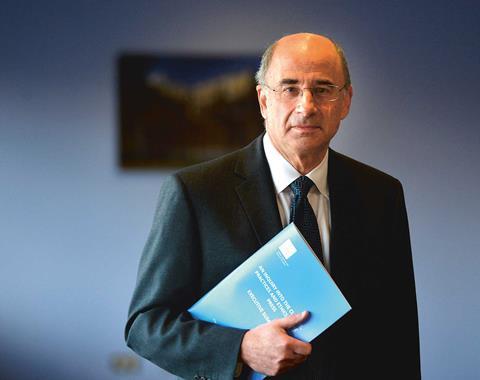For better or worse, journalists do not belong among the regulated professions.
My introduction to government regulation of the press was under the Shah of Iran. Or rather His Imperial Majesty the Shahanshah, as the black-suited goon from the Ministry of Information used to insist as he pored over the page proofs of the Tehran Journal every night before our presses could roll. The small-hours censorship was generally more farcical than sinister – the goon’s English wasn’t perfect and our journalists knew to avoid any mention of banned topics such as poverty or political dissent.
As a junior sub-editor, my job was to make final amendments and deletions as quickly as possible, at least before the print foreman standing at my elbow carried out one his threats of physical violence. I picked up a rich vocabulary of Persian swearwords.
It’s a long way from the passions of pre-revolutionary Iran to the debate coming to a head in the UK this week over censorship by legal costs. But I believe there is a continuum of coercion, and one that should concern lawyers. Especially as they could be used as the government’s blunt instrument through Section 40 of the Crime and Courts Act 2013.
A consultation on the implementation of Section 40 closes today. The measure is essentially the stick to encourage newspapers to sign up with a regulator approved by the government-funded ‘super-regulator’ the Press Recognition Panel, created by royal charter following the Leveson inquiry. A stick is necessary because the vast majority of publishers, including all national newspapers, refuse on principle to subscribe to state regulation. (There are separate concerns about the only approved front-line regulator, Impress, which is funded by the former Formula 1 boss Max Mosley.)

To jolly the refuseniks along, Section 40 would change the ‘loser pays’ presumption in actions against publishers for libel, slander, breach of confidence, misuse of private information, malicious falsehood and harassment. Even if they won the substantive case, newspapers outside a recognised self-regulator would have pay their own and their opponents’ legal costs. The government justifies the Section 40 incentive on the grounds that recognised self-regulators must offer a low-cost arbitration scheme, and that newspapers declining to join such schemes should face consequences.
Editors, investigative reporters and columnists - including former lord chancellor Michael Gove - have lined up to condemn the measure as a licence for anyone unhappy with a newspaper’s reporting to bankrupt it. But not everyone is impressed with this argument: why not just sign up with an approved regulator? Lawyers, after all, are regulated by bodies approved by the Legal Services Board, whose members are appointed by the lord chancellor. This has raised some eyebrows internationally, but has not noticeably turned lawyers into state poodles.
However in the UK there is a fundamental difference between journalists and lawyers. By virtue of their professional standing, lawyers have certain privileges not enjoyed (if that’s the right word) by ordinary citizens. Journalists are not professionals and have no rights other than those of ordinary citizens exercising their common and European convention rights to free speech subject to such restrictions as are necessary in a democratic society etc etc.
What apparently special rights we claim in practice, seats on the press bench of a hot criminal trial, for example, are granted only as the eyes and ears of the general public.
I am not going to claim that newspapers’ signing to an approved regulator will overnight lead to the spectacle of black-suited censors standing over printing presses. But it will create the nucleus of a licensing regime for ‘respectable’ journalists. A regime in which the state will have a stake. In an age when, thanks to the web and social media, we are all potentially journalists, that is a dangerous development. It is naive to believe, as many enthusiasts of regulation seem to, that a system set up to enforce standards in the press will confine itself to tabloid national newspapers rather than serious reporting which embarrasses the government of the day. The answer to junk journalism is more journalism, not less.
And even in the pre-internet age, regulation didn’t do the Shah much good. His goons could ensure that newspapers toed the line, but that only created a mass appetite for underground cassette tapes carrying the sermons of exiled ayatollahs – and for violent revolution.
Michael Cross is Gazette news editor































6 Readers' comments